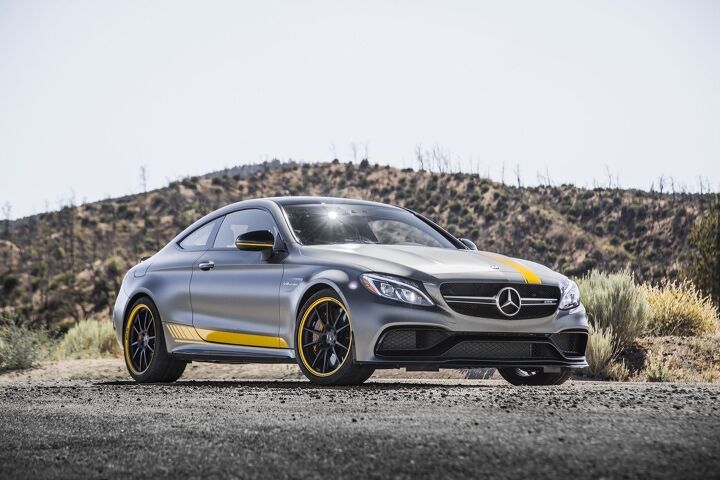#AmgC63
Confirmed: The Mercedes-AMG C63 Won't Regain a V8 in the Future
The Mercedes-AMG naming system has long defined entry-, mid-, and high-level cars, but enthusiasts had plenty to say about the brand’s move to a hybrid four-cylinder engine in one of its most iconic current models. The newest C63 dropped its fantastic V8 in favor of a complex four-cylinder plug-in hybrid powertrain, and while we reported on the rumors that have pointed to the eight-cylinder’s return, Mercedes-AMG’s CEO recently put all speculation to bed.
Report: Mercedes-AMG C63 Abandoning V8 Power
The next-generation Mercedes-AMG C63 will be quite a bit different than the model that’s currently on sale. We’ve already heard stirrings that rear-wheel drive will be swapped for standard all-wheel drive with the sub-brand’s now-familiar drift mode. But additional rumors now suggest the Autobahn bruiser is poised to abandon its 4.0-liter biturbo V8.
While nothing has been confirmed by the manufacturer, Autocar claims details sourced from AMG’s Affalterbach engineering HQ indicate the C63 will embrace a 2.0-liter inline-four using a 48V mild-hybrid system.
Rental Review: 2017 Mercedes-AMG C63 S Sedan
When Mercedes-Benz brought the W201 platform here as the somewhat oddly named 190E 2.3, it was immediately nicknamed the “baby Benz.” The successor to that car, yclept “C-Class” to fit precisely within Daimler-Benz’s new idiot-compatible nomenclature, became known as the “Cheap-Class” at Mercedes-Benz dealerships.
The car you see above, piloted by Danger Girl at Sebring International Raceway in what was not a violation of the Hertz Dream Cars rental agreement, is no longer baby-sized. Nor is it particularly cheap at the as-tested price of just over $74,000. So what is it, exactly?
Well, it’s absurdly powerful; the Pep-Boys-style block “S” at the end of the C63 badge indicates a full 503 horsepower from a twin-turbo 4.0-liter V8. It’s remarkably well-equipped, although there are a few omissions about which one could gripe and I’ll discuss those below. It’s as competent as you’d expect, being the top-spec sedan version of a car that is surprisingly decent even in its poverty-spec, MB-Tex-equipped four-cylinder form.
Most of all, however, the 2017 Mercedes-AMG C63 S is a sharp reminder that AMG isn’t what it used to be, for better or for worse.


















Recent Comments